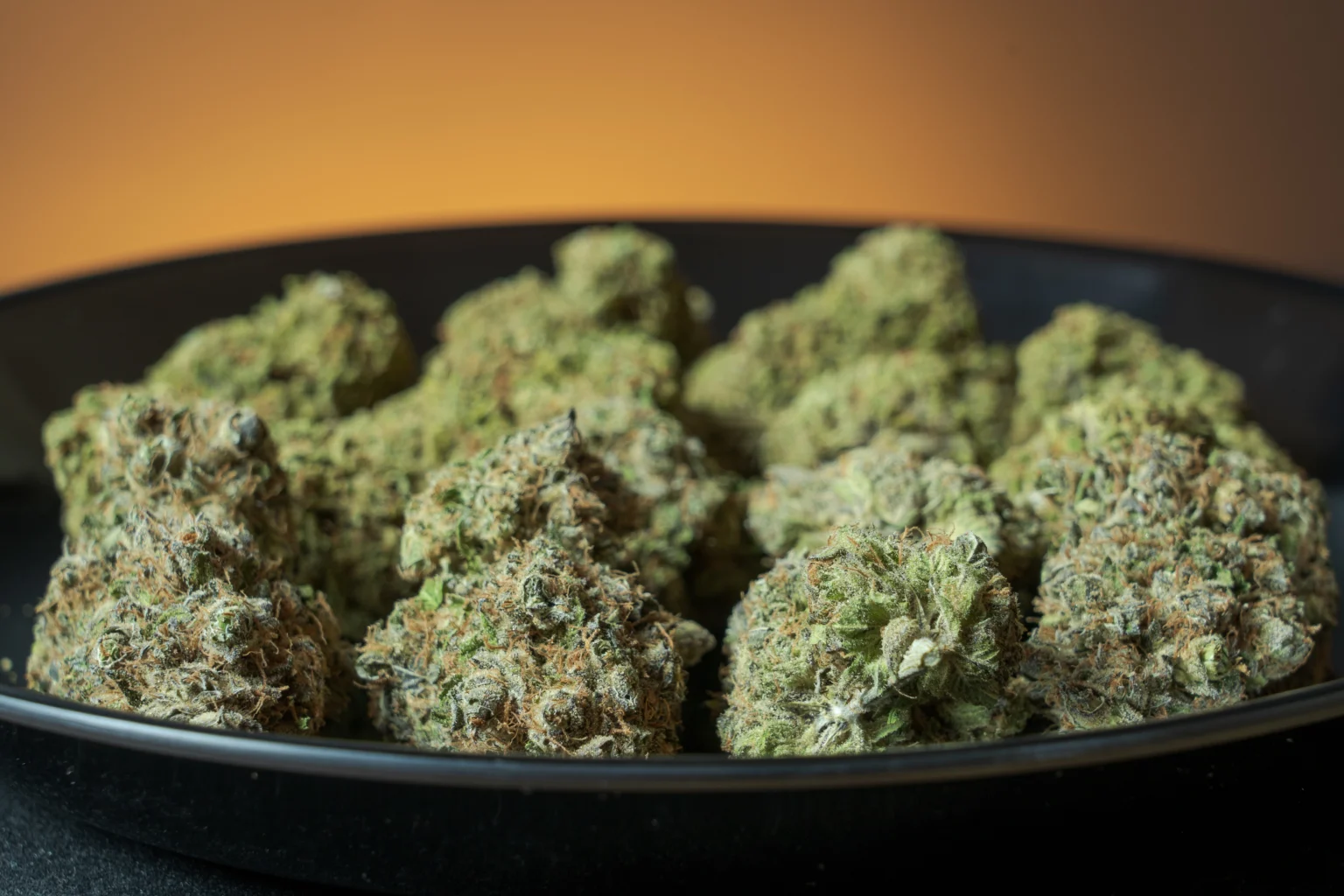Cannabis has long fascinated people around the world, but not all cannabinoids are created equal. Among the many compounds in the plant, THCA Flower is emerging as a favorite for those seeking wellness benefits without the typical psychoactive effects of THC. Unlike THC, THCA is non-psychoactive in its raw form, making it a unique option for health-conscious consumers.
THCA, or tetrahydrocannabinolic acid, is found naturally in raw cannabis buds. When the plant is heated or undergoes decarboxylation, THCA transforms into THC, which is the compound responsible for the familiar cannabis high. THCA Flower refers specifically to cannabis buds that are rich in this cannabinoid and are valued for their potential therapeutic properties rather than recreational use.
Understanding THCA Flower
THCA Flower has been gaining attention due to its versatility. While THC grabs the spotlight for its psychoactive effects, THCA is quietly celebrated for wellness benefits. It doesn’t alter your mental state, which means you can enjoy its properties without feeling “high.”
People consume THCA Flower in multiple ways. Some enjoy it raw in smoothies or juices, while others prefer tinctures or topical applications. Those who lightly vaporize the flower can benefit from THCA while minimizing THC conversion, keeping the experience focused on health.
The Discovery and Origins of THCA
Though humans have used cannabis medicinally for thousands of years, THCA itself was only scientifically identified in the 20th century. Initially, researchers were focused on THC, the psychoactive compound. Later, attention shifted to THCA due to its potential medical applications, especially its anti-inflammatory and neuroprotective properties.
Historically, indigenous and traditional cultures consumed raw cannabis to relieve pain, inflammation, or digestive discomfort. While they didn’t know the exact chemical compounds, they were effectively harnessing THCA’s benefits long before science identified it.
How THCA Differs from THC
The main difference between THCA and THC lies in their effects on the brain. THCA doesn’t bind directly to CB1 receptors, which is why it is non-psychoactive. THC, on the other hand, produces the classic “high” when these receptors are activated.
In practical terms, this makes THCA Flower an appealing option for people who want to experience cannabis’ potential health benefits without the mental alterations associated with THC.
THCA Flower in Cannabis History
Cannabis has been a part of human culture for thousands of years, used for everything from medicine to textiles. Early cannabis consumption often involved raw plant material, which naturally contained THCA.
Over the centuries, recreational use focused on heated forms of cannabis, turning THCA into THC. Modern wellness trends, however, are bringing THCA back into focus. People now seek raw or minimally heated cannabis products to preserve therapeutic cannabinoids while avoiding psychoactive effects.
Cultivation of THCA-Rich Strains
Growing THCA Flower requires careful attention to strain selection and cultivation techniques. THCA is abundant in certain cannabis varieties known for their high cannabinoid content. Farmers and cultivators carefully monitor light, temperature, and harvest timing to maximize THCA levels.
Some widely recognized THCA-rich strains include Harlequin, Pineapple Express, and Sour Diesel. Optimal cultivation ensures the buds retain high levels of THCA while remaining potent and fresh. Proper storage, away from light and heat, also helps preserve the cannabinoid content.
Consumption Methods for THCA Flower
The appeal of THCA Flower lies in its versatility. People consume it in several ways depending on their preference:
- Raw consumption: Juicing or blending raw cannabis preserves THCA fully.
- Tinctures and oils: Extract THCA without converting it into THC.
- Low-temperature vaporizing: Allows some effects without full decarboxylation.
- Topical application: Used in creams and balms for localized relief.
It’s important to avoid high heat if the goal is to retain THCA, as this process converts it into THC, producing psychoactive effects.
Health Benefits of THCA Flower
Research on THCA is still developing, but preliminary findings suggest it has several therapeutic benefits:
- Anti-inflammatory effects for joint pain and arthritis
- Neuroprotective properties supporting brain health
- Anti-nausea benefits, particularly for chemotherapy patients
- Antioxidant properties promoting overall wellness
Although more clinical studies are needed, early results are promising, positioning THCA Flower as a wellness-focused cannabis option.
Safety and Considerations
THCA Flower is generally well-tolerated. However, users should be mindful of potential issues:
- Rare allergic reactions or skin sensitivity
- Possible interactions with medications, especially blood thinners
- Overconsumption in concentrated extracts could lead to mild digestive discomfort
Consulting a healthcare provider before incorporating THCA products is always recommended, particularly for those with preexisting conditions.
Legal Status
THCA Flower exists in a complicated legal landscape. Laws often focus on THC content rather than raw THCA:
- In the United States, hemp laws permit cannabis with less than 0.3% THC, making some THCA Flower legal.
- In Europe, regulations vary widely, with some countries allowing medicinal use and others restricting cannabinoid products.
- In other regions, legality can be unclear, so consumers must check local regulations before purchasing.
Modern Research
Interest in THCA has grown alongside the expansion of medical cannabis studies. Research explores:
- Anti-inflammatory effects for chronic conditions
- Neuroprotective potential for neurodegenerative diseases
- Anti-nausea properties supporting cancer treatment
This growing body of evidence supports THCA Flower as a non-psychoactive alternative in cannabis therapy.
Market Trends
The popularity of THCA Flower is rising among consumers seeking wellness-oriented cannabis products. Awareness of its non-psychoactive properties, coupled with the global expansion of medical cannabis programs, is driving demand.
As the market grows, cultivators are producing higher-potency THCA strains and introducing new consumption options like tinctures and infused edibles.
Comparison with Other Cannabis Products
THCA Flower is distinct because it offers wellness benefits without intoxication, unlike THC-dominant cannabis. Compared to CBD, THCA has a unique chemical profile that may provide additional neuroprotective and anti-inflammatory effects. For consumers seeking raw cannabinoid therapy, THCA Flower presents a versatile and approachable option.
Preservation and Storage
Maintaining THCA potency requires proper storage:
- Keep buds in airtight, dark containers
- Avoid prolonged exposure to heat and light
- Grind only when ready to consume
These practices ensure the flower remains fresh, effective, and safe to use.
The Future of THCA Flower
THCA Flower is likely to become a key player in cannabis wellness culture. Its non-psychoactive profile aligns with the growing consumer preference for health-focused cannabis products. Advances in cultivation and research will continue to enhance potency, availability, and medical understanding.
As more people discover the benefits of raw cannabinoids, THCA Flower is poised for mainstream wellness adoption, bridging traditional healing knowledge with modern science.
Conclusion
THCA Flower offers a unique combination of therapeutic potential, versatility, and non-psychoactive experience. From its historical use in raw cannabis to modern wellness trends, it stands out as an accessible and effective option for those seeking health benefits without a high.
Whether used in raw form, tinctures, or low-heat vaporization, THCA Flower provides a safe and enjoyable path into the world of cannabinoids, making it a standout in the growing landscape of cannabis wellness.















